Jakko M. Jakszyk Balances Secrets, Lies & King Crimson
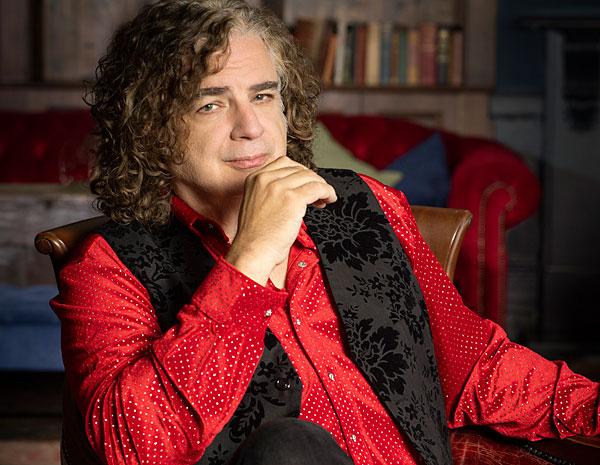
Almost by default, the pandemic gave Jaksyzk more time to focus on finishing his current solo album, the aptly named Secrets & Lies (InsideOut Music), which was released at the end of October 2020. A rich sonic tapestry interwoven with all his far-reaching musical interests on display, Secrets & Lies opens up even more via Jaksyzk's immersive 5.1 mix on the included DVD-A/V (either in 24-bit/96kHz DTS-HD Master Audio 5.1 or 24/96 Dolby AC3). And, as you likely know already, Jakszyk's no 5.1 newcomer either, having turned in stellar surround mixes for iconic albums by the likes of King Crimson, Jethro Tull, Ian Anderson, Chris Squire, Bill Bruford, and Emerson, Lake & Palmer. Frankly, Jakszyk and Steven Wilson are the two-man Murderer's Row of surround-sound heavy-hitters.
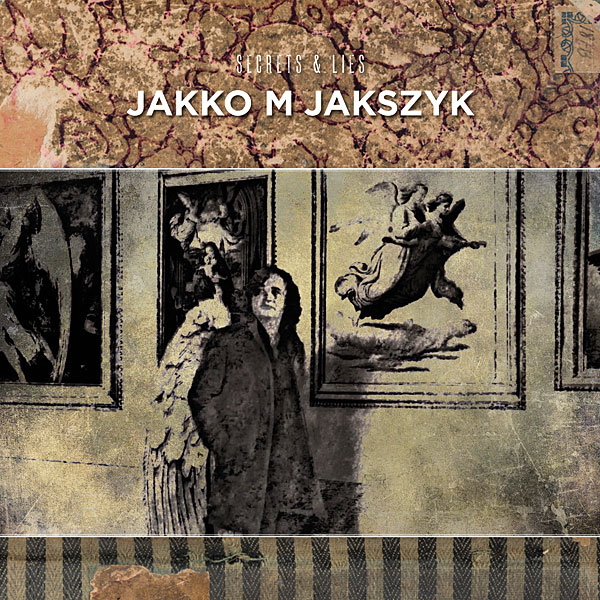
The very concept of secrets and lies being intertwined together also cuts a pretty deep swath in the artist's personal life, something he admits couldn't help but spill over into the new record's subject matter. "That's the theme of lots of lyrics on the album," Jaksyzk confirms. "It also became a real theme for me at the beginning of the year, because I found out lots of stuff about my personal background I didn't know. Like, I got a dossier of my adoption, and I found all sorts of details my mother had not told me. Her narrative, and the reality, are two different things, so keeping secrets and telling lies—that all kept coming up. That's why I ended up calling the album Secrets & Lies, because it seemed to be a running theme in so much of our lives—and obviously politically on both sides of the Atlantic as well."
Jakszyk, 62, and I connected via Skype across the Pond to his home in England to discuss the finer sonic elements of Secrets & Lies, how he navigates the King Crimson catalog both onstage and in the surround mixes he does for their storied catalog, and the albums he considers to be on his personal 5.1-mix Holy Grail wishlist. Blame the words / Blame the news / Blame what's right in front of you. . .
Mike Mettler: Secrets & Lies is such a personal record, something that comes across even more impactfully when you sing lines like "lives in reverse" and "swap divisions for memories" in the last song on the album, "Separation." As I understand it, that track actually originated from a King Crimson writing session, didn't it?
Jakko M. Jakszyk: Well, yeah, though it wasn't exactly a writing session. I mean, the way Robert [Fripp, King Crimson's co-founder and iconoclast guitarist] and I have written together since A Scarcity of Miracles [May 2011's lone Jakszyk, Fripp and Collins release] is, he would come around to the studio and teach me some new double-guitar thing, or he would record some patterns, or a riff, or whatever. I would reassemble it all retroactively and come up with a tune, and then we would work at it, to and fro. The things he liked we took into rehearsal, and those tunes are either part of our repertoire, or they're waiting to be dealt with.
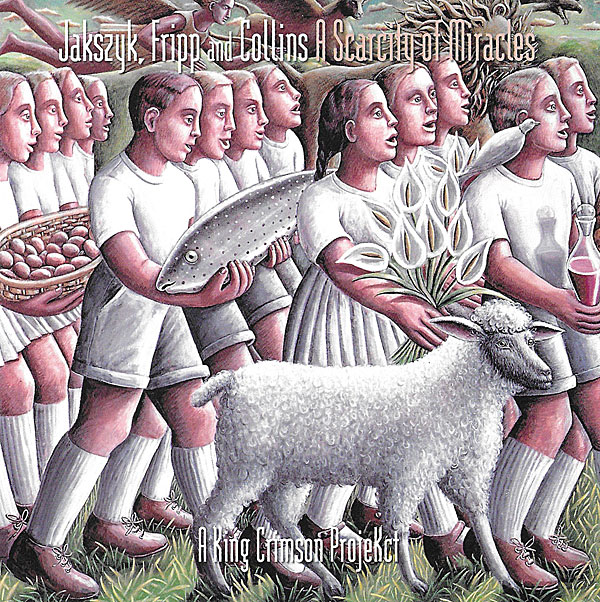
There are three songs on this album I took to Robert with a view for them to be used with Crimson. We had this bit of an in-joke, really, where Robert would say, "I love this song. It's marvelous. It would be an ideal track for your new solo album!" Which is a not-so-subtle way of saying, "We're not playing this, man."
Mettler: That's very magnanimous of him.
Jakszyk: (laughs) Yeah. So there are three songs, which are the one we've just discussed, "Separation," plus "Uncertain Times" and "Under Lock and Key."
Mettler: Uncertain Times is also the title of the 10-inch live EP King Crimson put out in 2018 [which contains four live songs recorded between 2015-2017].
Jakszyk: Yeah, well, it's Robert's title, and I wrote the song for that tour. He kind of liked it, and then decided he didn't want to do it. So I thought, "I'm going to finish it."
Mettler: Oh, that's great. Well, as a surround sound fanatic and geek, I'm loving your 5.1 version of Secrets & Lies. Can we dive into your philosophy of that mix? I'm thinking especially of what you did for what I'll call the orchestral track, "Secrets, Lies and Stolen Memories," for starters.
Jakszyk: I have to give credit to Nigel Hopkins, who created that whole orchestral thing. I mean, it's all fake, but bits of it sound pretty real. I'd already written it using string patches and stuff, so I knew where it was going harmonically. He'd been working on another album I'd also been working on. I heard one of the tracks on it and I said, "Oh, that sounds great. Where did you record the orchestra?" And [someone else working on it] said, "Yeah, it's not an orchestra. It's Nigel pretending to be an orchestra." I asked him to do an arrangement for that track and, yeah, it sounds amazing. He's a very clever man.
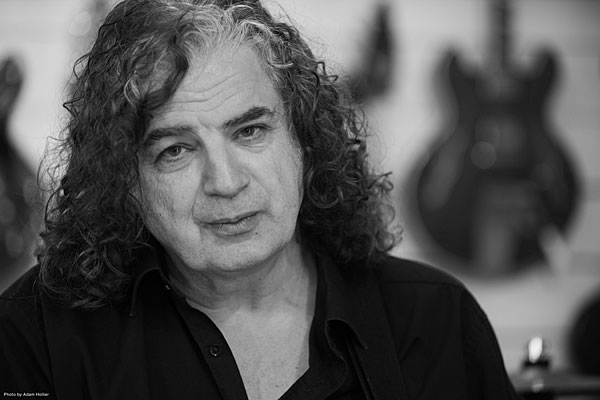
Mettler: It's really quite good. It also sounds to me like you've got a little bit of a Celtic feel on "Trading Borders."
Jakszyk: Yeah! Well, "Trading Borders"—my daughter [Amber Jakszyk] wrote that. She's 15, right? We went on a father-daughter day out in London, back in February. We got off the train at Euston Station, and the piano was there. My daughter went over to it, sat there, and started playing this piece. I assumed it was an Irish thing because it sounded Irish to me, or Celtic. I said, "Where did you learn that? Is that a thing off YouTube?" She looked at me like I was an idiot: "No, I wrote it." I said, "You're joking!" And she said, "No!" So, I got my iPhone out, and I recorded her playing it. When we got back, I booked a studio with a piano, and I forced her to go to the studio.
Mettler: So she's playing the beginning, and everything else on it?
Jakszyk: Yeah, she played the piano all the way through. I forced her to play the part, and she didn't want to do that either! I added all these Irish low whistles, guitars, and bits of keyboards. And at the end, I spun in the street recording from my iPhone.
Mettler: Well, that's great. Tell me what your overall 5.1 philosophy was for Secrets & Lies. Did you know going into it that, "Yeah, I'm definitely doing this album in surround"?
Jakszyk: Well, first I had to ask the question whether they [the label, InsideOut Music] wanted to do it or not, and they did. I've done quite a few things in surround, and they're all different. I know when I did Thrak [in 2015, for the 20th anniversary of King Crimson's April 1995 studio album], we did the surrounds first. Normally, I do the stereo first and then create the surround from the stereo, but with Thrak, we did it the other way around, because it just felt like there was a lot of information all crammed into the stereo picture. We opened it all out, and it was my decision to put one set of drums up front, and another set up the back.
When we got to doing the stereo, Robert said, "We need to do something as drastic in stereo as we have in the surrounds." So, we made the decision to do the drums as virtually mono left and right in the stereo version.
Mettler: Yeah, they're very separated.
Jakszyk: Yeah. You can hear the instruments much more clear, you know?
Mettler: It's not even a question. Especially when you get to the "Vrooom Vrooom" instrumental tracks toward the end of the album. It's just magic.
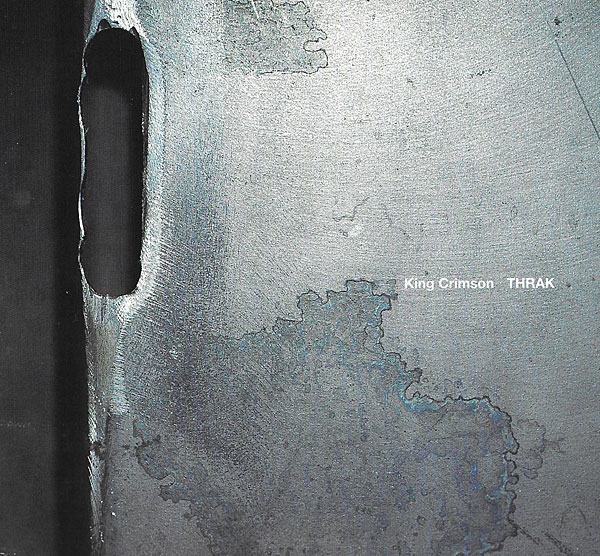
Jakszyk: I like it to be an immersive experience. It's just putting yourself in the middle of the music, really.
Mettler: Obviously, you and Steven Wilson are two of the top-tier surround go-to guys out there. Was that something you always wanted to do? I mean, were you into quad way back in the day at all, or no?
Jakszyk: No, it was an accident, to be honest with you. In any musical career, you have moments where you're struggling to earn a living. An old colleague of mine was working for a big events company, and he called me in to do some music. I wrote all this music for this big event—some of which was on film, and some of it was for live dancers and other stuff. It was a corporate thing, and the budgets were enormous!
I started doing more of that kind of work, and eventually, they started doing it in surround. I bought a surround system and learned how to work it so when the surround thing came up with Robert and he said there were a couple of albums Steven [Wilson] didn't want to do, I threw my hat into the ring and said, "I'll do Thrak, because I really like Thrak."
Then I became a guy who does the surround stuff, like I said, by accident. And Steven knew I was doing that. Basically, the stuff he didn't want to do, he'd say, "Get Jakko to do it!" (both laugh)
So, I ended up doing the Emerson, Lake & Palmer stuff [2014's Brain Salad Surgery (Deluxe Edition) and 2015's Trilogy (Deluxe Edition)], and I mixed Ian Anderson's last solo record, [April 2014's] Homo Erraticus in surround. Ian said nice things to me about it. He really liked what I did, and I ended up doing a lot of stuff for him [and for Jethro Tull].
Mettler: I've spoken to Ian specifically about the work you guys did together, and he told me you just have this inherent sense of knowing what he wants, which is a great comfort factor for him.
Jakszyk: Oh, that's lovely!
Mettler: Obviously, there's a lot more of the Jethro Tull catalog to do in 5.1, starting with the 1980s releases since their '60s and '70s releases have pretty much all been done by this point. Are you allowed to say if you're working on any of those Tull albums?
Jakszyk: Well, from what I understand, I was going to do some more Jethro Tull, but because of lockdowns, Steven decided to do it, so I've been rejected. (chuckles)
Mettler: Ah, well, that's interesting, because I was sitting here thinking, [September 1987's] Crest of a Knave would be fantastic to get in 5.1 from your hands.
Jakszyk: I was going to do the later albums, but suddenly, Steven had some time on his hands because all his [2020] touring was canceled! (chuckles again) It's a friendly rivalry, you know.
Mettler: That's what Steven's said to me too. Whenever he was unable to do something, he knew that you could do it, and do it the way it should be done. Like for Emerson, Lake & Palmer, he said those ELP albums weren't his personal favorites, so he didn't feel like he did them justice [i.e., the surround mixes Wilson did in 2012 for both November 1970's Emerson, Lake & Palmer and June 1971's Tarkus]. He was quite happy to say, "Jakko's got a better feel for them. He should just do those other ELP 5.1s."
Jakszyk: Yeah, and as you know, we get on. We go and have lunch together, and stuff. He's moved now, but he used to live about five minutes away from me.
Mettler: Speaking of ELP, do you have a personal favorite 5.1 of theirs you did? [November 1973's] Brain Salad Surgery is obviously a favorite in these quarters [which Jakszyk mixed in surround for DVD-A in 2014].
Jakszyk: It was [July 1972's] Trilogy for me, actually [which Jakszyk mixed in 5.1 for DVD-A in 2015]. It was the album I remember buying as a kid. There's a Greg Lake song on it called "From the Beginning" which I always loved, and it's still got an amazing atmosphere.
But remixing those albums was a bloody nightmare, because when you get albums from that era by bands of that stature, the two-inch tape on which they were recorded on in the mid-'70s was not cheap and, consequently, something of a budgetary concern.
When you do Bill Bruford albums or Chris Squire albums, you transfer three, maybe four tapes, because they're all 15, 20 minutes each. With Emerson, Lake & Palmer, however—when I got the transferred tapes, there were 42 multitrack tapes, and no track sheets. It took me weeks to even establish which were the final takes. And, of course, you've got these long pieces where they've decided, "Oh, the first 10 minutes are best on Tape 15 and on Tape 4, and the second half, well, that's best on Tape 15 and on Tape 9." And you've got to try and forensically find out where that is. What they would've done is mixed those two sections in stereo, and then edited them together—but I have to do it in multitrack, because I'm doing it in surround.
























































